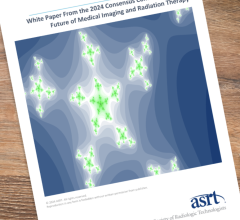
August 26, 2011 – The U.S. Food and Drug Administration (FDA) recently released its “Strategic Plan for Regulatory Science,” a sweeping initiative to modernize the tools and methods that the agency uses to evaluate whether the products it regulates are effective and safe for consumers.
Regulatory science is the foundation of decision-making at FDA. Researchers across FDA gather data, do tests and think of new, better and faster ways to scientifically establish that regulated products enhance the lives of the American public, without harming them.
Products regulated by FDA include biologics (such as blood products and vaccines), human drugs, medical devices, foods, cosmetics, tobacco products, and animal feed and drugs. The broad scope of FDA’s plan covers the personal health of the consumer, the strength of the economy and the security of the nation.
“As new discoveries yield increasingly complex products, FDA’s experts need to be equipped to make science-based decisions resulting in sound regulatory policy,” said Commissioner of Food and Drugs Margaret A. Hamburg, M.D.
Eight New Priorities
The framework of the regulatory science initiative was originally released in October 2010. The new plan fills in the details and focuses on eight key areas:
- Modernizing toxicology — the study of chemical, biological or physical agents that can be harmful — and improving the ability of tests, models and measurements to predict product safety issues. This includes, where feasible, the development of new methods that could reduce or replace animal testing.
- Crafting new tools and approaches for the development of personalized medicine — getting the right medicine to the right person at the right time.
- Supporting new and improved manufacturing methods by researching how new technologies affect product safety, effectiveness and quality.
- Ensuring that FDA is ready to evaluate innovative and emerging technologies with the necessary expertise and infrastructure.
- Expanding and improving FDA’s information technology infrastructure and the application of those resources to support sophisticated analyses of data.
- Implementing the prevention-focused food-safety system mandated by the Food Safety Modernization Act passed by Congress and signed into law by President Obama in January.
- Speeding the development of safe and effective medical countermeasures to protect against threats to U.S. health and security, such as chemical, biological, or nuclear threats or naturally occurring infectious disease outbreaks. Such countermeasures include drugs, vaccines, diagnostic tests and personal protective equipment.
- Developing a communications strategy that will help FDA adapt to rapidly evolving technologies that are changing how people receive and share information.
Regulatory Science at Work
What it boils down to, says FDA’s Chief Scientist Jesse Goodman, is that people want new drugs, healthy food and other products that work. They want them to be developed and approved quickly, but they also want these things to be safe.
That is where regulatory science comes in. Here are a few examples of how this science has worked so far:
- A clinical trial model was developed to help scientists quickly test the most promising drugs in development to treat women with rapidly growing breast cancers. The drugs are targeted to the biology of each woman’s tumor using specific genetic or biological markers.
- By studying data from hundreds of clinical trials, FDA found that antidepressants can increase the risk of suicide in people under 25. This resulted in FDA placing warnings on the labeling and medication guides for these drugs.
- After the Deepwater Horizon disaster released in excess of 92 million gallons of oil into the Gulf of Mexico in 2010, FDA developed a more rapid, highly sensitive chemical testing method to ensure that seafood from the Gulf is safe for consumption.
“The headlines are replete with examples of the critically important scientific role the agency plays in addressing crises, such as contaminated heparin, melamine in pet food, outbreaks of food-borne illness, and questions about vaccine safety, seafood safety, or readiness for pandemic influenza,” the strategic plan states.
“Strong and up-to-date science in these areas will help us do our jobs better—to help people be as healthy, safe and secure as possible,” Goodman said.
For more information: www.fda.gov


 July 30, 2024
July 30, 2024 








